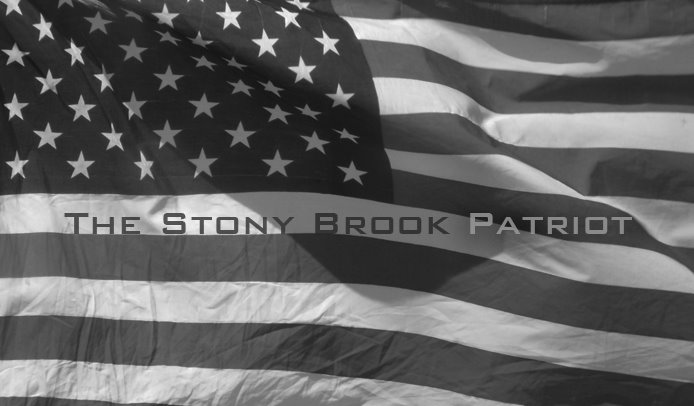
Modern liberals squirm at the sound of the 'P word'. That is, Patriotism. One often hears them say, "Oh, I despise Patriotism." And then, like clockwork, they commit the dreaded error by adding, 'and Nationalism.' They say this with such conviction, so certain that these two words are one and the same. But are they?
To settle the matter, I go to no greater authority than George Orwell. In his essay, "Notes on Nationalism" he takes on the very issue I've brought up here. Even in 1945, people mistakenly took patriotism and nationalism to be synonymous, but Orwell is very clear - this is dead wrong.
Here is his definition of nationalism:
By "nationalism" I mean first of all the habit of assuming that human beings can be classified like insects and that whole blocks of millions or tens of millions of people can be confidently labelled "good" or "bad." But secondly -- and this is much more important -- I mean the habit of identifying oneself with a single nation or other unit, placing it beyond good and evil and recognizing no other duty than that of advancing its interests.
But to be clear:
Nationalism is not to be confused with patriotism. Both words are normally used in so vague a way that any definition is liable to be challenged, but one must draw a distinction between them, since two different and even opposing ideas are involved.
What then is Patriotism?
By "patriotism" I mean devotion to a particular place and a particular way of life, which one believes to be the best in the world but has no wish to force on other people. Patriotism is of its nature defensive, both militarily and culturally. Nationalism, on the other hand, is inseperable from the desire for power. The abiding purpose of every nationalist is to secure more power and more prestige, not for himself but for the nation or other unit in which he has chosen to sink his own individuality.
The distinction between the two is quite clear. It is a commitment to a way of life, to a place, and a corresponding pride and admiration for the traditions, the people, and the customs of that place. It is not, however, a feeling that these things to which a patriot is devoted ought to be imposed onto those who do not want it. It is a misunderstanding of this part of Orwell's definition, that patriotism entails no desire to force itself on other people, that leads our liberal friends to cringe at the sound of the 'P word', when in reality, what they really detest are the sentiments, and the corresponding excesses of nationalism.
By their logic, a devotion to any one particular place or way of life is an admission that not all ways of life are equally good or desirable. That one is better than another It offends their relativistic worldview that they pride themselves on.
They also mistakenly believe that patriotism engenders the kinds of actions that lead to war. But they are wrong here again. As Orwell makes clear, it is nationalism that leads people to act in nefarious ways, but not patriotism. On the contrary, it is only patriotism, pure and simple, that can provide the citizens of a country with the necessary motivation and force to protect themselves against aggressors, against those who have imbibed the dangerous currents of the so-called 'blind nationalism.' It is only from the profound pride of place that arises in the patriot that could ever compel him to give his life in defense of his homeland. I cannot imagine anything more unreal and contradictory to human nature than to imagine the ambivalent soldier, filled not with any kind of feeling of unbreakable commitment to his way of life but with the neutral, effete, lukewarm feelings of internationalism.
The consequences of a lack of pride of place, of a commitment not to a way of life that one sees as the best and worth defending, but to a nebulous international community, are described quite accurately by Thomas Sowell in his recent article, Does Patriotism Matter?
Here Sowell argues convincingly that the uprooting of patriotism in favor of pacifism and internationalism in France after WWI was a deciding factor in the embarrassing defeat it suffered under siege from the Nazis. Here Sowell explains it best:
Did it matter? Does patriotism matter?
France, where pacifism and internationalism were strongest, became a classic example of how much it can matter.
During the First World War, France fought on against the German invaders for four long years, despite having more of its soldiers killed than all the American soldiers killed in all the wars in the history of the United States, put together.
But during the Second World War, France collapsed after just six weeks of fighting and surrendered to Nazi Germany. At the bitter moment of defeat the head of the French teachers' union was told, "You are partially responsible for the defeat."
This is but one of example of the terrible consequences that befall those places in which patriotism is besieged and eradicated by good-intentioned but ill-advised proponents of the bankrupt ideas of internationalism. To my liberal friends, I say, you are indeed right to abhor the cries of nationalism, but if you really care so much to oppose it, it is eminently foolish to attack the very antidote to the scourge of blind nationalism that you so ardently disavow - patriotism.

No comments:
Post a Comment